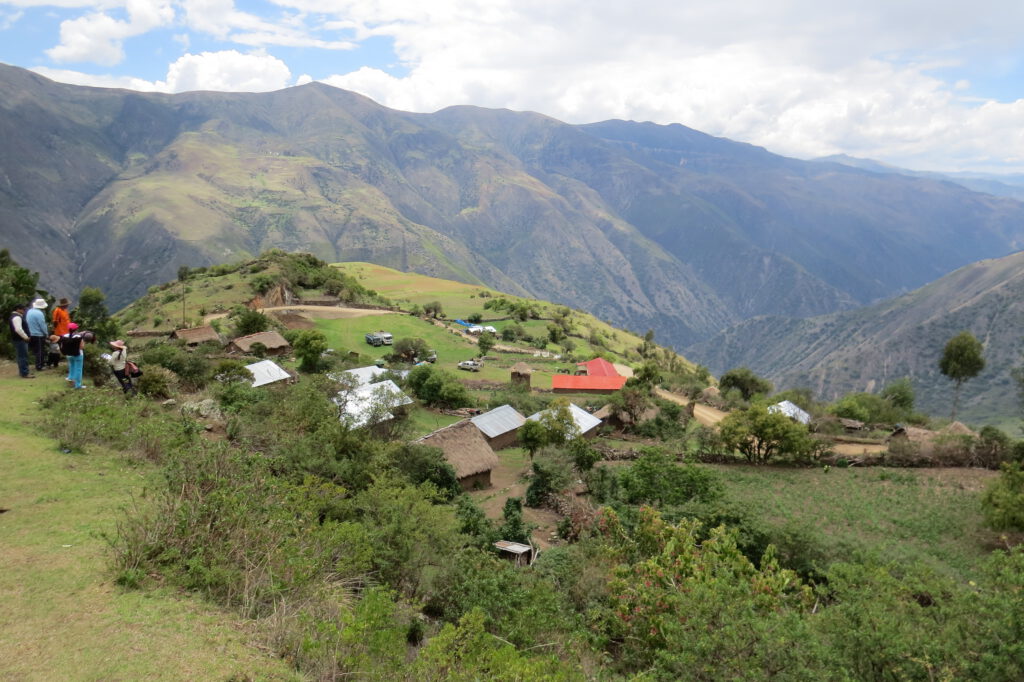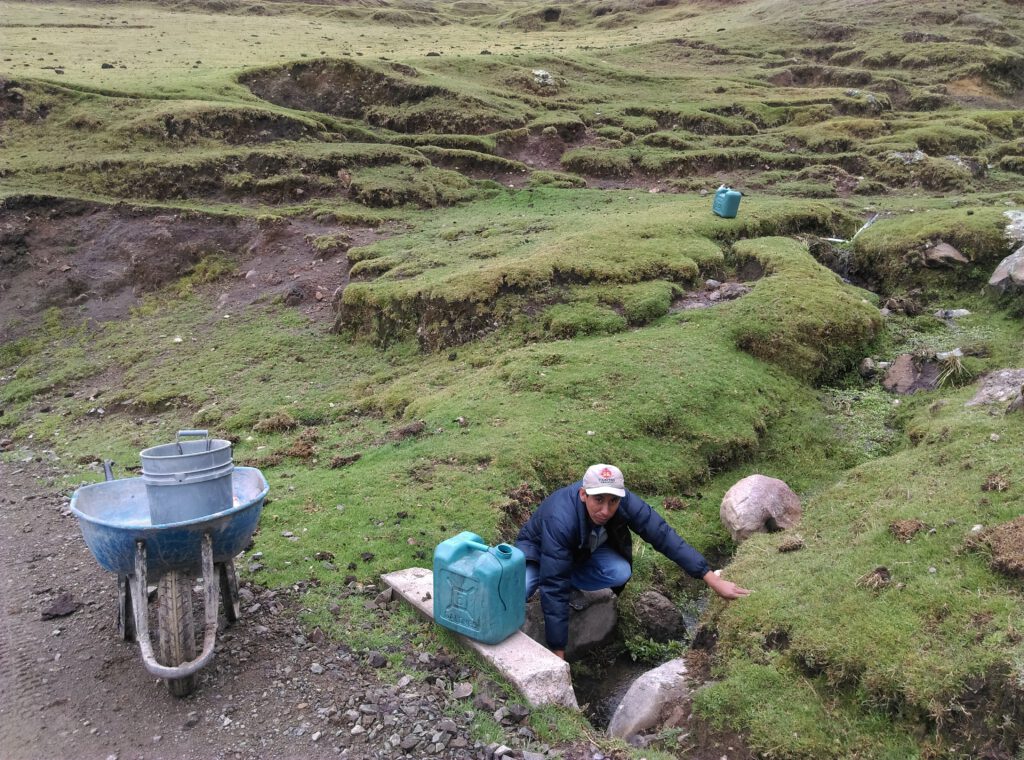Peru
Pucuta
Background
In Peru’s remote highlands, limited access to clean water impacts all aspects of life. Defective and rusted water piping systems not only cause water to be wasted on its way to communities, but also result in water arriving at people’s homes contaminated with pathogens. During the dry season, which lasts from June to October, water sources usually dry up completely. As a rule, it is then women and girls who are responsible for fetching water for the entire family. They have to cover long and arduous distances on foot and carry heavy water containers. This is not only a physical strain, but in many cases also causes girls to miss school lessons – with long-term negative effects.
Water scarcity and lack of infrastructure result in limited use of sanitation facilities. Currently, families either have unsanitary dry latrines built from boards, sticks and plastic, or they use open fields to relieve themselves. In either case, this increases the risk of possible contamination of the water supply – a connection that most local people are unaware of.
Consumption of contaminated water, along with unsafe hygiene practices, leads to a high incidence of diarrheal and gastrointestinal illnesses. For children, diarrheal diseases pose a particularly high risk: In Peru, they account for 5% of deaths among children under five and lead to anemia and chronic malnutrition.
Project location
The project is being carried out in Pucuta, a rural Peruvian community in the province of Abancay, located at over 3,000 meters above sea level. People live in poor conditions and social exclusion due to poor road connections to towns, lack of communication technology, and long distances between villages -often even between homes. Because these communities are far from major population centers, they receive very little attention or support from government institutions. It is only 157 km to the city of Abancay, the capital of the Apurimac region, but the trip by car takes more than 4 hours on poor roads. Basic infrastructure in terms of water, electricity, health care and education is very precarious.
Project beneficiaries
The new water and latrine infrastructure will directly benefit the 184 inhabitants of Pucuta (38 families). The population is made up of peasant families, most of whom belong to the Quechua indigenous group. With about 85%, the largest part of the population is engaged in agriculture. Another important source of income is livestock, especially the raising of cattle, sheep and horses. Considering the harsh local climatic conditions, these activities bring families only about 35 to 70 euros per month.
In addition to the village farming families, the project will also benefit a wider group of people through the construction of sanitary facilities at the local kindergarten, elementary school, and the local church and community meeting hall.
A total of 232 people will be reached through the project activities.
Project activities
An improved water system will ensure access to clean water
- Obtaining permits for land and water use from Peruvian authorities
- Expansion of the spring catchment and water reservoir with connection to the pipelines that serve the community
- Installation of a water tap in each household
The installation of latrines/showers to improve hygiene practices
- Guiding families in digging trenches for foundations
- Constructing concrete foundations, floors and walls and covering them with zinc sheets according to the standardized model of the Peruvian government
- Installation of sanitary facilities (latrine and shower) and connection to the water system for 38 families, an elementary school, a kindergarten, a church and the community center
- Construction of a septic tank for the safe disposal of feces
Training of water committees strengthens local water management
- Coordination with local authorities and community organizations (health department (JASS) and water committee) to develop a construction and training plan for the overall project
- Provide theoretical and practical training to the JASS and the Water Committee on the operation and maintenance of the water system.
- Lead a work session with the JASS and Water Committee to develop a local plan for long-term maintenance of the water system
Establish better knowledge of healthy sanitation practices
- Community and school trainings to increase awareness of the importance and practices of healthy hygiene
- Jointly produced brochures and posters will sustain training content on hygiene
- Two radio spots will spread messages about hygiene, health, clean water and efficient water use
A closing event will distribute soap and other materials to support better hygiene practices.
Project objective
Increased access to clean water, hygiene infrastructure, and improved knowledge of healthy hygiene practices positively impact multiple areas of life:
- Children miss fewer days of school because they do not have to spend school time hauling water. This promotes girls’ education in particular.
- The health situation in the community improves significantly as the transmission of diseases through contaminated water is prevented. Clean water also allows families to wash their food before consumption, leading to healthier diets overall and especially improved child development.
- Increasing knowledge and strengthening local committees responsible for water supply will help ensure that these changes are sustainable and that the community receives long-term benefits from the project.
Overall, the project will significantly improve the health and well-being of the residents:inside of Pucuta and surrounding communities.
Partner organisation
Caritas Abancay has been working in sustainable development cooperation for 60 years with projects focusing on environmental protection, food security, health and agriculture. Their work is based on a participatory model that takes local culture into account.
Duration
October 2022 until August 2023
Costs
EUR 108,000
Sponsor
CORDES & GRAEFE Stiftung
Contact
Monica Denomy
WasserStiftung
m.denomy@wasserstiftung.de

